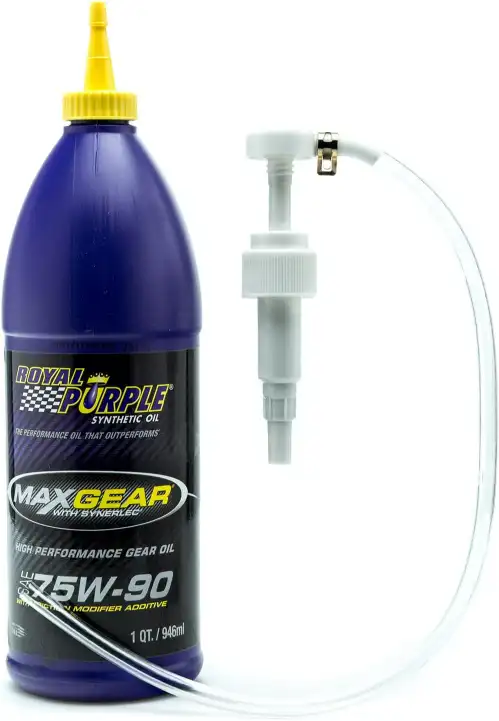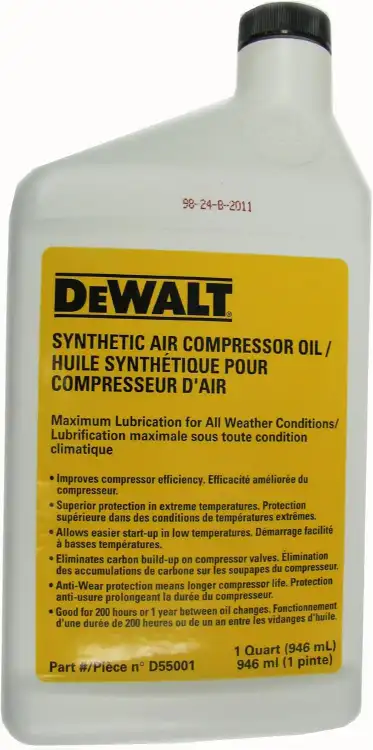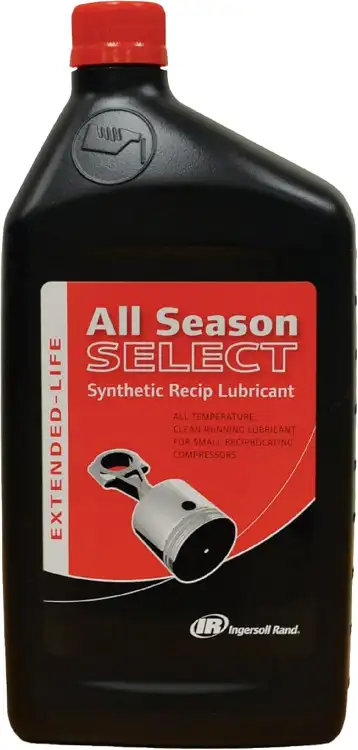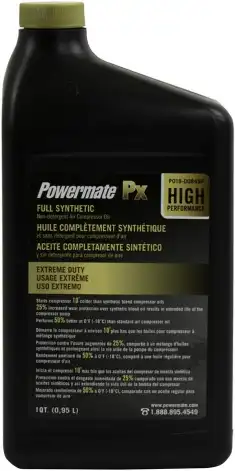Air compressor oils are a crucial component in the operation of air compressors. These oils serve multiple functions, including lubricating the moving parts, cooling the compressor elements, and sealing the system to prevent air leakage. Without the right oil, an air compressor can suffer from increased wear and tear, leading to decreased performance and a shorter lifespan.
Understanding the basics of air compressor oils is essential for anyone who owns or operates an air compressor. The type of oil used can significantly impact the compressor’s performance, energy efficiency, and longevity. Therefore, it’s crucial to choose the right oil for your specific compressor and application.
This article will delve into the world of air compressor oils, discussing their importance, the different types available, and how to choose the right one for your needs. We will also explore the impact of these oils on energy efficiency, wear and tear, and the environment.
Our Top Air Compressor Oils Picks

Royal Purple 01513 Synfilm Recip 100 Performance Synthetic Air Compressor
Check on AmazonKey Specs:
- Synthetic oil for high-performance air compressors
- Designed for heavy-duty and industrial applications
- Offers long-lasting, reliable performance
- Provides smooth operation and enhances compressor life
- Suitable for reciprocating air compressors
The Royal Purple 01513 Synfilm Recip 100 Performance Synthetic Air Compressor Oil is engineered for high-performance and longevity. This synthetic oil ensures smooth and efficient operation of air compressors, delivering enhanced reliability and durability. Designed for heavy-duty use, it supports the demanding needs of industrial and shop environments. The exceptional quality of Royal Purple’s products, including this air compressor oil, guarantees years of trouble-free performance, making it an ideal choice for maintaining the health and functionality of your equipment.

DEWALT Compressor Oil
Check on AmazonKey Specs:
- 32 fluid ounces of high-performance oil
- Improves compressor efficiency
- Superior protection in extreme temperatures
- Easier start-up in low temperatures
- Good for up to 200 hours or 1 year between oil changes
DEWALT Compressor Oil is a high-performance oil designed to keep your air compressor running smoothly and efficiently. With a 32 fluid ounce bottle, this oil provides superior protection in extreme temperatures, ensuring optimal compressor function even in harsh conditions. It allows for easier start-ups in low temperatures and helps improve compressor efficiency. This oil is designed for long-lasting performance, offering up to 200 hours or one year between oil changes, making it an excellent choice for maintaining your equipment.

Ingersoll Rand 38436721 OEM All Season Select Synthetic Lubricant
Check on AmazonKey Specs:
- 1 liter of high-performance synthetic lubricant
- Designed for use in all temperatures
- Performs four times longer than petroleum-based lubricants
- Reduces wear and prevents carbon buildup
- Weighs 2.1 pounds for easy handling
Ingersoll Rand 38436721 OEM All Season Select Synthetic Lubricant is a top-tier solution designed to enhance the performance and longevity of reciprocating compressors. This synthetic lubricant is formulated to maintain optimal performance in all temperatures, ensuring reliable operation year-round. It outperforms petroleum-based lubricants, lasting up to four times longer. The All Season Select lubricant reduces wear and prevents carbon buildup, which is crucial for the smooth operation of your compressor, minimizing maintenance and extending its life.

Powermate PX P018-0084SP 100% Full Synthetic Air Compressor Oil
Check on AmazonKey Specs:
- 1 quart of 100% full synthetic oil
- ISO 68 grade for superior performance
- 25% increased wear protection over synthetic blend oils
- Performs 50% better at 0°F (-18°C) than standard oils
- Flash point: 460°F (238°C), pour point: -40°F (-40°C)
Powermate PX P018-0084SP 100% Full Synthetic Air Compressor Oil is a premium lubricant designed for exceptional compressor performance. With a liquid volume of 1 quart, this oil starts 10° colder than synthetic blend oils, making it ideal for low-temperature environments. It offers 25% better wear protection compared to synthetic blends, extending the life of your compressor pump. Its high viscosity index ensures all-season performance, providing superior results even at 0°F (-18°C). With a flash point of 460°F (238°C) and a pour point of -40°F (-40°C), this oil is perfect for harsh conditions.
Understanding the Importance of Air Compressor Oils
Air compressor oils play a pivotal role in the efficient and smooth operation of air compressors. They lubricate the moving parts within the compressor, reducing friction and wear. This lubrication is vital for the compressor’s longevity, as it prevents premature wear and tear, leading to costly repairs or replacements.
Beyond lubrication, air compressor oils also serve as a coolant. They absorb the heat generated by the compressor’s operation, helping to maintain a stable operating temperature. This cooling function is crucial for preventing overheating, which can cause significant damage to the compressor.
Lastly, air compressor oils help to seal the system, preventing air leakage. This sealing function ensures that the compressor operates at maximum efficiency, as any air leakage can lead to a drop in performance. Therefore, the right oil can significantly enhance the compressor’s efficiency and performance.
Different Types of Air Compressor Oils
There are several types of air compressor oils available, each with its own set of characteristics and benefits. The most common types include mineral oils, synthetic oils, and semi-synthetic oils. The choice of oil can significantly impact the compressor’s performance, longevity, and energy efficiency.
Mineral oils are derived from crude oil and are typically less expensive than synthetic oils. They provide good lubrication and cooling properties but may not perform as well under extreme temperatures or heavy loads. Mineral oils also require more frequent changes due to their shorter lifespan.
Synthetic oils, on the other hand, are man-made and designed to provide superior performance under a wide range of conditions. They offer excellent lubrication and cooling properties, resist oxidation and thermal degradation, and have a longer lifespan than mineral oils. However, synthetic oils are more expensive, which may be a consideration for some users.
Synthetic vs. Mineral Air Compressor Oils: A Comparison
When comparing synthetic and mineral air compressor oils, several factors come into play. Synthetic oils are generally considered superior due to their enhanced performance characteristics. They offer excellent lubrication, superior cooling, and resistance to oxidation and thermal degradation. Additionally, synthetic oils have a longer lifespan, which can result in fewer oil changes and lower maintenance costs.
However, synthetic oils come with a higher price tag, which may be a deterrent for some users. Despite the initial cost, the long-term benefits of synthetic oils, such as improved performance and reduced maintenance costs, often outweigh the upfront expense.
Mineral oils, while less expensive, may not perform as well under extreme conditions or heavy loads. They also require more frequent changes due to their shorter lifespan. However, for less demanding applications, mineral oils can still be a viable and cost-effective option.
The Role of Viscosity in Air Compressor Oils
Viscosity is a critical property of air compressor oils. It refers to the oil’s resistance to flow and is a measure of its thickness. The right viscosity is essential for effective lubrication, cooling, and sealing. If the oil is too thin, it may not provide adequate lubrication. If it’s too thick, it may not flow properly, leading to inadequate cooling and potential damage to the compressor.
The ideal viscosity depends on the compressor type and the operating conditions. For example, rotary screw compressors typically require oils with a lower viscosity, while reciprocating compressors often need oils with a higher viscosity. The operating temperature also affects the oil’s viscosity, with higher temperatures leading to thinner oil.
Most air compressor oils come with a viscosity grade, which indicates the oil’s viscosity at specific temperatures. This grade can help users choose the right oil for their compressor and operating conditions. It’s crucial to consult the compressor’s manual or a professional to determine the appropriate viscosity grade.
How Temperature Affects Air Compressor Oil Performance
Temperature plays a significant role in the performance of air compressor oils. As the temperature increases, the oil becomes thinner, which can affect its lubrication and cooling properties. If the oil becomes too thin, it may not provide adequate lubrication, leading to increased wear and tear. On the other hand, if the oil becomes too thick at low temperatures, it may not flow properly, resulting in inadequate cooling and potential damage to the compressor.
Therefore, it’s crucial to choose an oil that can perform well under the compressor’s operating temperature range. Synthetic oils, for example, have excellent thermal stability, meaning they can maintain their viscosity and performance characteristics under a wide range of temperatures. This makes them a good choice for compressors operating under extreme temperatures or fluctuating conditions.
It’s also important to monitor the compressor’s operating temperature regularly and adjust the oil type or viscosity grade if necessary. Regular temperature checks can help prevent potential issues and ensure the compressor operates at peak efficiency.
The Impact of Air Compressor Oils on Energy Efficiency
Air compressor oils can significantly impact the energy efficiency of air compressors. The right oil can reduce friction, prevent air leakage, and maintain a stable operating temperature, all of which contribute to efficient operation.
Reduced friction means the compressor’s moving parts can operate more smoothly, requiring less energy. Preventing air leakage ensures that the compressor doesn’t have to work harder to compensate for the lost air, leading to energy savings. And by maintaining a stable operating temperature, the oil helps prevent overheating, which can cause the compressor to consume more energy.
Therefore, choosing the right oil is not just about improving the compressor’s performance and longevity. It’s also about enhancing energy efficiency and reducing energy costs. Synthetic oils, with their superior lubrication, cooling, and sealing properties, can often contribute to significant energy savings.
The Role of Air Compressor Oils in Reducing Wear and Tear
One of the primary roles of air compressor oils is to reduce wear and tear on the compressor’s moving parts. They do this by providing a protective layer between the parts, reducing friction and preventing direct metal-to-metal contact. This lubrication is crucial for preventing premature wear and tear, which can lead to costly repairs or replacements.
However, not all oils provide the same level of protection. The oil’s viscosity, thermal stability, and anti-wear additives can all affect its ability to reduce wear and tear. For example, oils with a higher viscosity can provide better lubrication, but they may not flow as well at lower temperatures. Synthetic oils, with their excellent thermal stability and anti-wear properties, are often the best choice for reducing wear and tear.
Regular oil changes are also crucial for minimizing wear and tear. Over time, the oil can become contaminated with dirt, metal particles, and other debris, which can increase friction and wear. By changing the oil regularly, you can ensure it continues to provide effective lubrication and protection.
Understanding the Specifications and Standards for Air Compressor Oils
When choosing an air compressor oil, it’s important to understand the various specifications and standards that apply. These can include viscosity grade, flash point, pour point, and others. These specifications provide information about the oil’s properties and performance characteristics, helping users choose the right oil for their needs.
The viscosity grade, as discussed earlier, indicates the oil’s thickness or resistance to flow. The flash point is the temperature at which the oil can ignite, while the pour point is the lowest temperature at which the oil will flow. These specifications can be particularly important for compressors operating under extreme temperatures.
There are also various industry standards that apply to air compressor oils, such as the ISO (International Organization for Standardization) standards. These standards provide guidelines for the oil’s performance, quality, and safety. It’s crucial to choose an oil that meets or exceeds these standards to ensure reliable and safe operation.
How to Choose the Right Air Compressor Oil for Your Needs
Choosing the right air compressor oil for your needs involves considering several factors. These include the type of compressor, the operating conditions, the oil’s specifications and standards, and the maintenance requirements. It’s also important to consider the cost, as the price can vary significantly between different types of oils.
The type of compressor is a crucial factor, as different compressors may require different types of oils. For example, rotary screw compressors typically require oils with a lower viscosity, while reciprocating compressors often need oils with a higher viscosity. The operating conditions, such as the temperature and load, can also affect the choice of oil.
The oil’s specifications and standards provide information about its performance and quality. It’s important to choose an oil that meets or exceeds the relevant specifications and standards to ensure reliable and safe operation. The maintenance requirements, such as the frequency of oil changes, can also be a consideration, as they can affect the total cost of ownership.
Factors to Consider When Buying Air Compressor Oils
When buying air compressor oils, there are several factors to consider. These include the type of oil, the viscosity grade, the specifications and standards, the brand reputation, and the price. Each of these factors can significantly impact the compressor’s performance, longevity, and energy efficiency.
The type of oil is a crucial factor, as different oils have different properties and performance characteristics. Synthetic oils, for example, offer superior lubrication, cooling, and thermal stability, but they are more expensive than mineral oils. The viscosity grade is also important, as it affects the oil’s lubrication and cooling properties.
The specifications and standards provide information about the oil’s quality and performance. It’s important to choose an oil that meets or exceeds the relevant specifications and standards to ensure reliable and safe operation. The brand reputation can also be a consideration, as reputable brands are more likely to produce high-quality oils. Finally, the price can be a factor, especially for users on a tight budget.
The Importance of Brand Reputation in Choosing Air Compressor Oils
Brand reputation is an important factor when choosing air compressor oils. Reputable brands are more likely to produce high-quality oils that meet or exceed the relevant specifications and standards. They are also more likely to provide reliable customer service and support, which can be crucial in case of issues or queries.
However, brand reputation should not be the only factor considered. It’s also important to look at the oil’s properties, performance characteristics, and price. Even lesser-known brands can produce high-quality oils that perform well under a wide range of conditions.
It’s always a good idea to do some research before making a decision. This can include reading reviews, consulting professionals, and comparing different brands and products. This research can help ensure you choose the right oil for your needs and get the best value for your money.
How to Properly Store and Handle Air Compressor Oils
Proper storage and handling of air compressor oils are crucial for maintaining their quality and performance. The oils should be stored in a cool, dry place, away from direct sunlight and extreme temperatures. They should also be kept in their original containers, which are designed to protect the oil from contamination and degradation.
When handling the oils, it’s important to avoid direct contact with the skin or eyes, as they can cause irritation. It’s also crucial to avoid inhaling the fumes, as they can be harmful. Always use appropriate protective equipment, such as gloves and goggles, when handling the oils.
Finally, it’s important to dispose of used oils properly. They should not be poured down the drain or into the environment, as they can cause pollution. Instead, they should be taken to a recycling facility or a waste disposal site that accepts used oils.
Understanding the Shelf Life of Air Compressor Oils
The shelf life of air compressor oils refers to the length of time they can be stored without losing their quality or performance. This can vary depending on the type of oil, the storage conditions, and the manufacturer’s recommendations.
Generally, unopened oils can be stored for several years without any issues. However, once opened, the oils should be used within a certain period, usually within a year, to ensure their performance. It’s important to check the manufacturer’s recommendations for the specific shelf life of the oil.
Proper storage is crucial for maintaining the oil’s shelf life. The oils should be stored in a cool, dry place, away from direct sunlight and extreme temperatures. They should also be kept in their original containers, which are designed to protect the oil from contamination and degradation.
The Environmental Impact of Air Compressor Oils
Air compressor oils can have a significant environmental impact, especially if not handled and disposed of properly. Used oils can contain harmful substances, such as heavy metals and other contaminants, which can pollute the soil and water if released into the environment.
Therefore, it’s crucial to dispose of used oils properly. They should not be poured down the drain or into the environment. Instead, they should be taken to a recycling facility or a waste disposal site that accepts used oils. Some facilities can even re-refine the used oils, turning them into new products and reducing the need for new oil production.
Choosing environmentally friendly oils can also help reduce the environmental impact. These oils, often made from synthetic or bio-based materials, are designed to have a lower environmental impact than traditional oils. They may be biodegradable, non-toxic, or have a lower carbon footprint, making them a more sustainable choice.
Conclusion: Making an Informed Decision on Air Compressor Oils
Choosing the right air compressor oil is crucial for the performance, longevity, and energy efficiency of your compressor. It involves considering several factors, including the type of compressor, the operating conditions, the oil’s properties, and the price. It’s also important to consider the environmental impact and the brand reputation.
Proper storage and handling of the oils are crucial for maintaining their quality and performance. Used oils should be disposed of properly to prevent environmental pollution. And regular oil changes are essential for minimizing wear and tear and ensuring the compressor operates at peak efficiency.
By understanding the importance of air compressor oils and making an informed decision, you can ensure your compressor operates efficiently and lasts for many years. Whether you choose a synthetic or mineral oil, make sure it meets or exceeds the relevant specifications and standards and is suitable for your specific compressor and application.
FAQs
Q: What is the role of air compressor oils?
A: Air compressor oils serve multiple functions, including lubricating the moving parts, cooling the compressor elements, and sealing the system to prevent air leakage.
Q: What are the different types of air compressor oils?
A: The most common types of air compressor oils include mineral oils, synthetic oils, and semi-synthetic oils.
Q: How does temperature affect air compressor oil performance?
A: As the temperature increases, the oil becomes thinner, which can affect its lubrication and cooling properties. If the oil becomes too thin, it may not provide adequate lubrication, leading to increased wear and tear.
Q: How can air compressor oils impact energy efficiency?
A: The right oil can reduce friction, prevent air leakage, and maintain a stable operating temperature, all of which contribute to efficient operation.
Q: How should air compressor oils be stored?
A: The oils should be stored in a cool, dry place, away from direct sunlight and extreme temperatures. They should also be kept in their original containers, which are designed to protect the oil from contamination and degradation.
